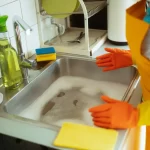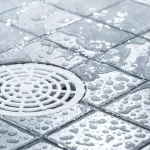Plumbing is a vital system in every home, handling everything from drinking water to waste removal. Ensuring that your plumbing system remains in excellent working condition requires regular inspections. While a general rule is to schedule a plumbing inspection every two to three years, certain circumstances make it imperative to call in a professional sooner. Here’s a detailed look at why timely plumbing inspections are crucial and the specific scenarios that warrant immediate attention.
1. You Are About to Sell Your Home
Market Demands and Buyer Expectations: In the competitive housing market of Mississauga, even well-maintained homes can fall short if there are hidden plumbing issues. Buyers are increasingly meticulous and expect homes to meet stringent standards. A plumbing system in disrepair or one that fails to meet current codes can lead to reduced offers or even cause potential buyers to walk away.
Avoiding Surprises During Sale: A plumbing inspection before listing your home is a proactive measure to avoid last-minute surprises. Home inspections by potential buyers or their agents might uncover plumbing problems that could derail the sale. By addressing these issues beforehand, you enhance the appeal of your home and avoid last-minute repairs or price reductions. It’s a small investment that can significantly impact the sale process and final sale price of your property.
Ensuring Compliance and Safety: Plumbing codes and standards may have changed since your home was built. An inspection ensures that your plumbing meets current regulations, enhancing safety and preventing legal issues during the sale. Addressing any non-compliance issues before listing helps in smooth transactions and gives potential buyers confidence in the property.
2. You’ve Done Some Renovations (or Are Planning Some)
Impact on Existing Plumbing: Renovations, especially those that add new bathrooms, kitchens, or appliances, can place additional demands on your plumbing system. Older homes, particularly those built in the post-war era, may not be equipped to handle modern plumbing needs. Renovations can strain existing pipes, cause potential leaks, or lead to inefficiencies in water distribution.
Pre-Renovation Inspections: Before starting major renovations, a plumbing inspection can help assess the existing system’s capacity to handle new fixtures or changes. This can guide renovation plans and prevent overloading the current plumbing setup. For instance, if you’re adding a new bathroom, an inspection can determine if the existing pipes are sufficient or if upgrades are needed.
Post-Renovation Checks: After renovations, it’s essential to have a follow-up inspection to ensure that no damage was caused during the renovation process and that everything is functioning correctly. This is crucial as renovations can sometimes inadvertently lead to issues such as leaks or pressure problems that might not be immediately obvious.
3. There Has Been a “Plumbing Event”
Understanding Plumbing Events: A “plumbing event” refers to any significant issue such as burst pipes, sudden drops in water pressure, unexplained temperature fluctuations, or sewage backups. These events often indicate underlying problems that could affect your entire plumbing system. Addressing these issues promptly is crucial to prevent further damage.
Post-Event Inspection: If your home has experienced any of these plumbing events, it’s essential to schedule an inspection as soon as possible. While the immediate problem may have been addressed, a professional inspection can identify any additional damage that may have occurred. For example, a burst pipe might have damaged surrounding areas or affected other parts of the plumbing system.
Comprehensive Assessment: A thorough inspection following a plumbing event ensures that all potential issues are identified and resolved. This includes checking for secondary damage, assessing the integrity of pipes and connections, and verifying that repairs were done correctly. Ignoring or delaying this step can lead to recurring problems and more extensive damage in the future.
Why Regular Inspections Matter
Preventative Maintenance: Regular inspections are a key part of preventative maintenance, allowing you to identify and address potential issues before they escalate into major problems. This proactive approach can save you from costly repairs and extensive damage. By catching problems early, you can avoid emergencies and ensure that your plumbing system remains efficient and reliable.
Peace of Mind: Knowing that your plumbing system is in good condition provides peace of mind. Regular inspections help you feel confident that your home’s essential systems are functioning properly, reducing the risk of unexpected disruptions or emergencies. This is especially important for maintaining comfort and safety in your home.
Optimal Performance: An efficiently operating plumbing system contributes to lower utility bills and a more comfortable living environment. Regular inspections help ensure that your system performs at its best, reducing energy consumption and preventing issues that can lead to higher costs. Properly maintained plumbing also extends the lifespan of your pipes and fixtures.
Informed Decision-Making: Having a clear understanding of your plumbing system’s condition enables you to make informed decisions about repairs, upgrades, and maintenance. Whether you’re planning renovations, preparing to sell your home, or addressing specific plumbing concerns, knowing the state of your plumbing system helps you make better choices and prioritize necessary actions.
Conclusion
Regular plumbing inspections are essential for maintaining a healthy and efficient plumbing system. While it’s generally recommended to have an inspection every two to three years, certain situations such as selling your home, completing renovations, or experiencing significant plumbing events may require more immediate attention. By scheduling timely inspections, you ensure that your plumbing system remains in optimal condition, preventing costly repairs and ensuring the comfort and safety of your home. For any of these scenarios, contacting a certified Mississauga plumber for a comprehensive inspection is a prudent step in maintaining your home’s plumbing system.






